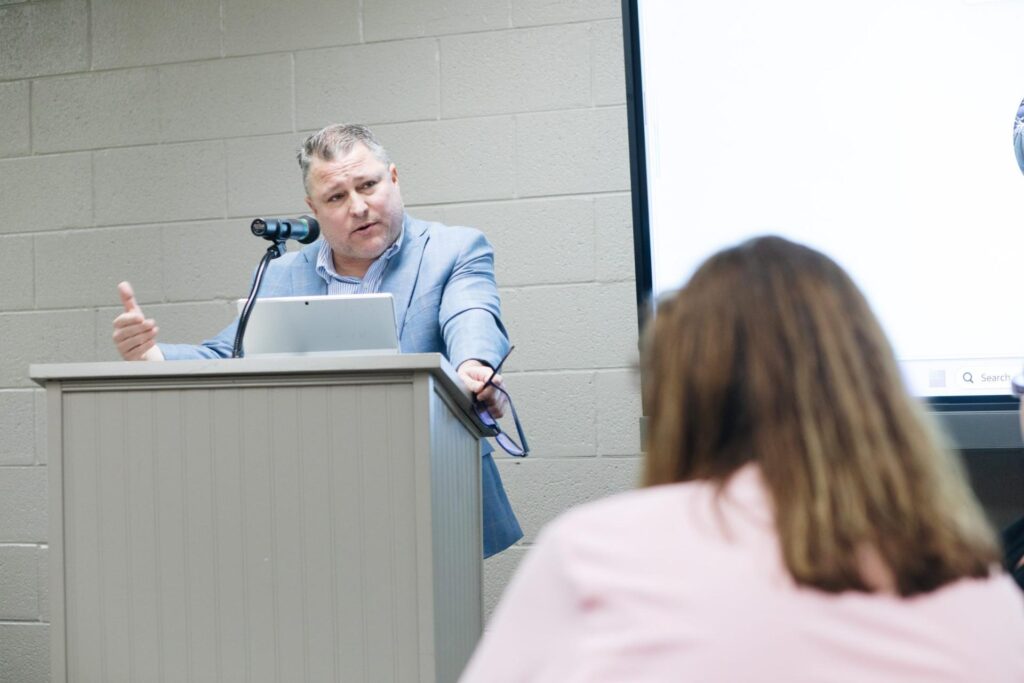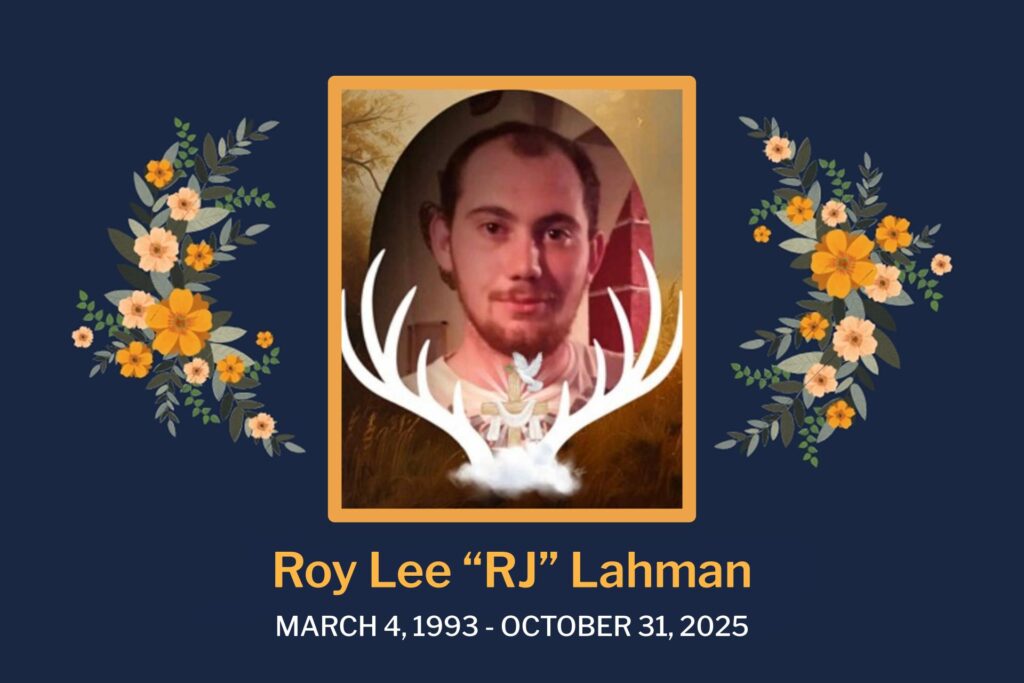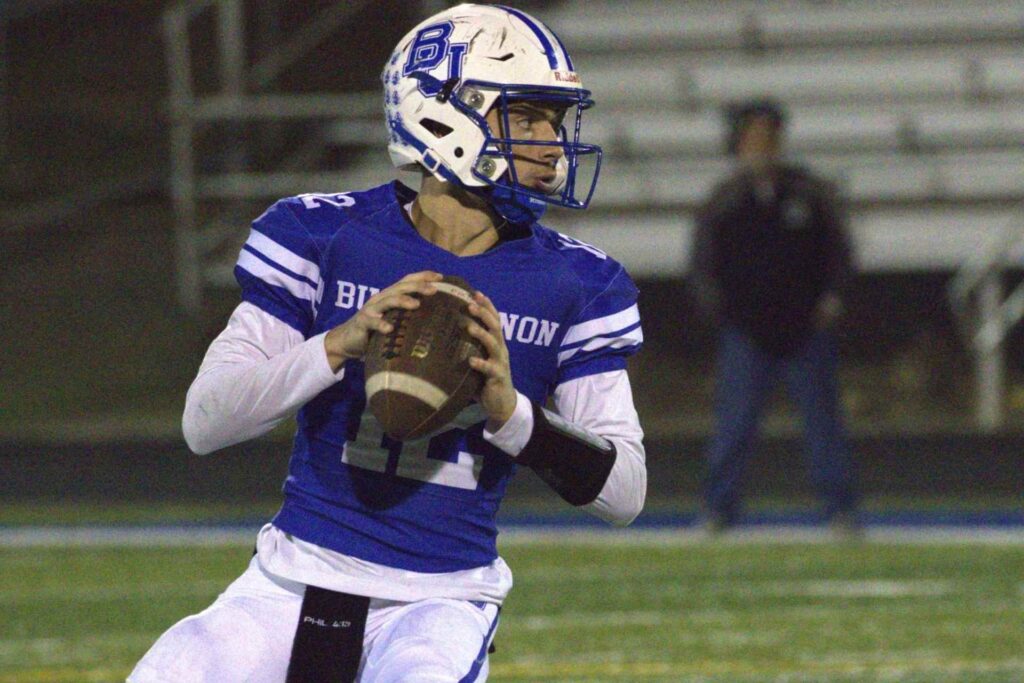By Duncan Slade
Mountain State Spotlight
This story was originally published by Mountain State Spotlight. Get stories like this delivered to your email inbox once a week; sign up for the free newsletter at mountainstatespotlight.org/newsletter
After years of complaints about infighting at the Mingo County Board of Education, state education officials investigated the board’s procedures and financial decisions.
They arrived in February. And the next month, they took over.
Mingo County is one of eight counties — that serve nearly 25,000 students — where the state is changing how things are run.
The state already controlled Upshur and Logan counties, took over Mingo, Tyler, Nicholas and Boone counties in recent months and warned Roane and Randolph counties that they could be next.
In all but one of these counties, students are performing below the state’s average for academic achievement, but this is not a major factor in the decision. The state takes over counties for administrative and financial reasons.
Over the last decade, enrollment in West Virginia schools has steadily declined, leaving counties with fewer dollars to pay teachers or maintain buildings.
When the state is in control, it can pick the county superintendent, decide how the county spends its money and consolidate schools.
Here’s what to know about state control of schools in West Virginia.
Who runs West Virginia’s public schools?
Under the state constitution, the state Legislature must provide a “thorough and efficient system of free schools.” The constitution also empowers an independent state board of education, charging it with the “general supervision” of schools.
West Virginia has one of the most highly centralized education systems in the country, according to a 2012 audit. More than in any other state, schools are highly regulated by West Virginia law.
After this year’s legislative session, the new laws affecting public schools filled over 200 pages, from displaying “In God We Trust” in each school to specifying how air rifle teams must store and transport their firearms.
Voters in each county elect a five-member local school board that serves as a public forum for residents, chooses the superintendent, decides how money is spent, hires teachers and writes local school policies.
When does the state take control?
West Virginia law gives the state board of education broad authority to intervene in a county school system when delaying action “would not be in the best interests of the students.”
In March, the state board took over Mingo County schools for the third time in as many decades. Investigators said that the county board was rife with political infighting and not following proper parliamentary procedures.
Two months later, the board took over the schools in Tyler and Nicholas counties. In Tyler County, investigators reported that the county board wasn’t properly following the open meetings act or county policies. In Nicholas County, they found that the board hired a sex offender related to the county superintendent.
After Boone County’s maintenance director pleaded guilty to a $3.4 million mail fraud scheme, state investigators found that the county wasn’t properly keeping track of purchases. In June, the state board took over that county’s school system as well.
In Roane and Randolph counties, the state board declared a state of emergency due to financial issues and gave local leaders until the end of the year to work on them.
What does a takeover mean for students, teachers and staff?
The county school board can be a place for residents to raise concerns with how schools are run. Board members live in the county and have to face the voters every four years.
After the state board takes over a county school system, the state picks the superintendent and that person runs the schools. Exact changes vary widely but most decisions are no longer made by the local elected board.
“Now that the state’s in control, there’s not much to worry about,” said Chip Perrine, president of the Nicholas County board of education.
Now, when somebody calls him or he runs into somebody at Walmart, Perrine said he tells them to talk to the new superintendent. He and the board don’t have a say anymore.
“It’s kind of sad,” he said. “You’re elected to do a job, and the state can override you on that.”
What changes does the state make?
In 2010, the state board took over Fayette County schools. For years, the county had too many school buildings, some of which were aging to the point of being dangerous.
The county didn’t have enough state funding to both pay the current staff and keep its buildings maintained. Closing schools was the answer, but residents and board members disagreed over which ones to shutter.
“It had kept Fayette County in turmoil,” said Pat Gray, who was first elected to the county board just weeks before the takeover and now serves as president.
Gray said the state kept board members involved, even as their powers were limited to approving field trips and resolving student discipline issues. After a couple different appointed superintendents, a plan started to develop in 2015 that would close almost half of the county’s schools over the next decade, build several new ones and do major renovations.
As the Fayette County restructuring plan neared final approval in 2017, the state board gave back control to the local board, who voted in favor of the changes.
Almost a decade later, Gray, the board president, said that the county is no longer fighting over which schools to close or reacting to broken boilers at failing facilities.
“We’ve been able to focus on our people and improving our academics,” he said.
How does a county get back control of its schools?
Under West Virginia law, the state board is required to assess a county under its control at least once per year to determine whether the issues have been resolved. Then, the state board can give back some, or all, power to the county board.
If the state board hasn’t given back control after five years, it must hold a public hearing in the county.
On average, state takeovers last for almost seven years, said Jeff Kelley, an assistant state superintendent who runs the accountability division.
During a Nicholas County board of education meeting last month, Kelley said that the state needs to see that problems leading to the intervention are addressed. The state also needs to be convinced that these issues won’t happen again and see sustainable academic productivity.
“There’s no set of boxes that have to be checked off, which, once they’re done, you just get the autonomy back,” he said.














